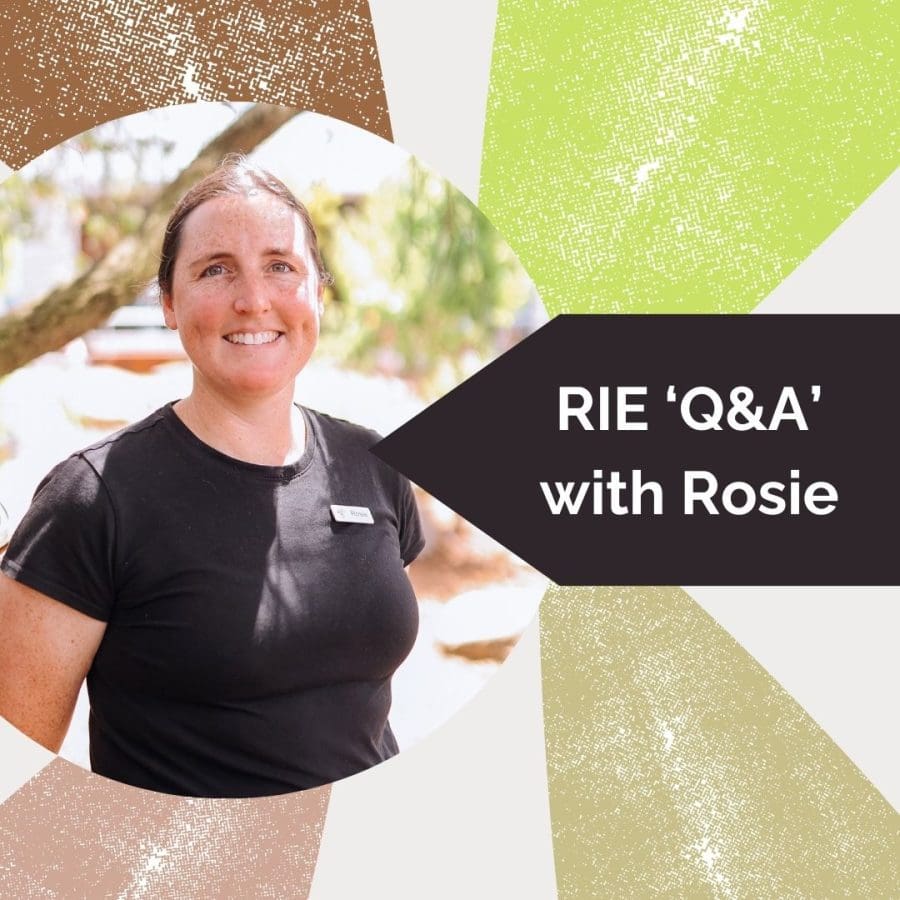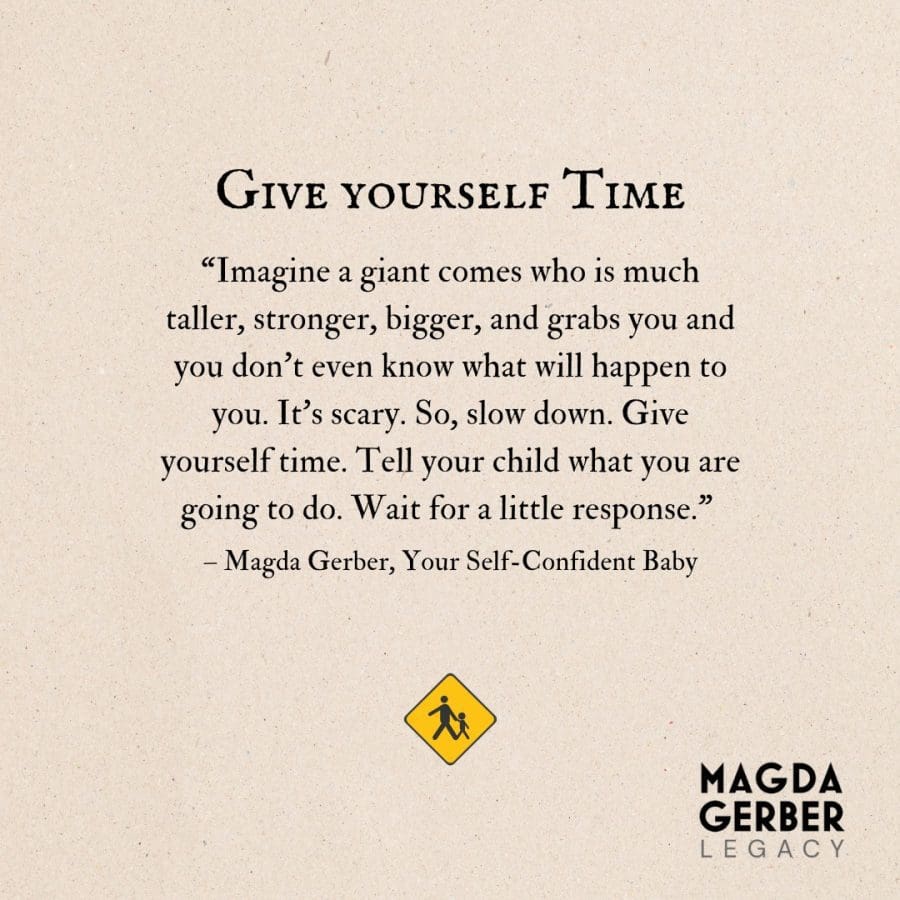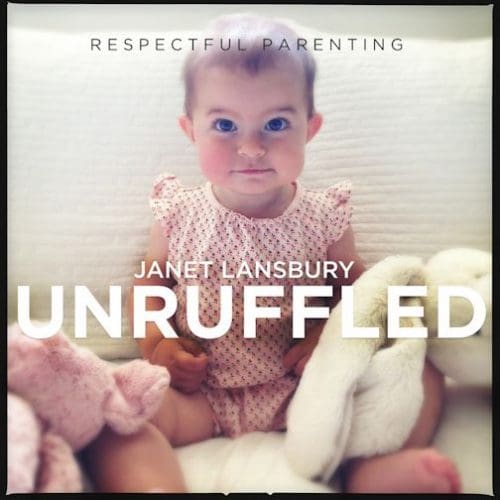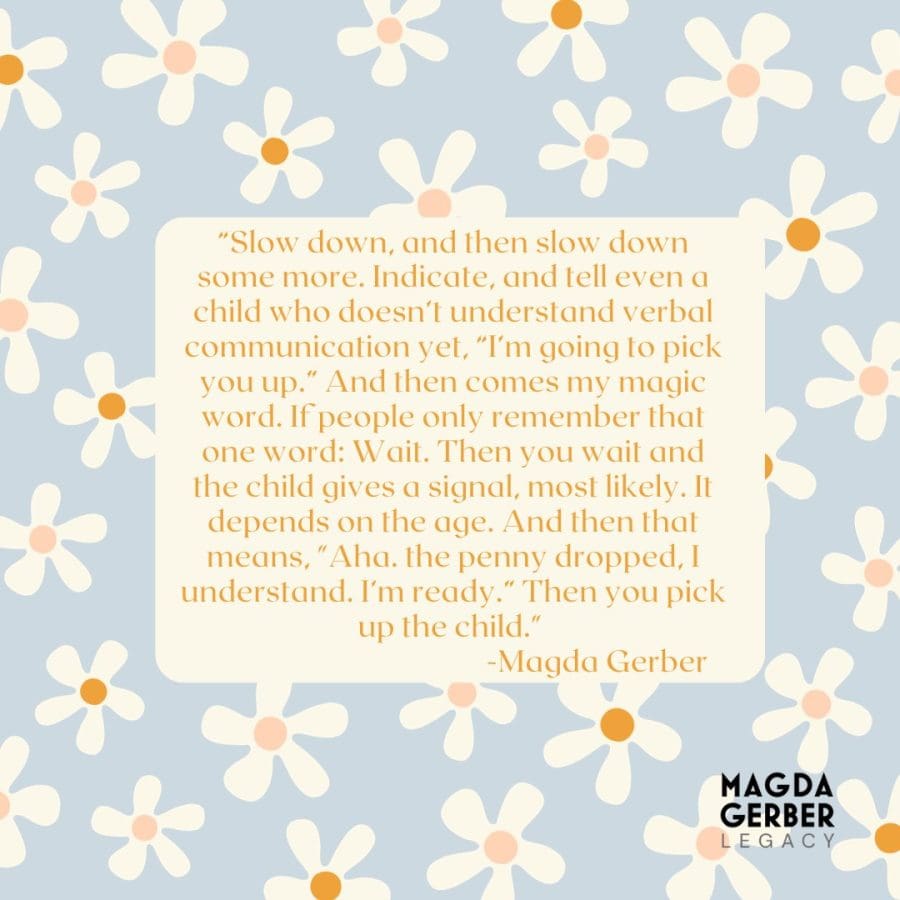
RIE Q&A with Rosie
As carers of young children, we are often filled with questions about how to best navigate the challenges presented in our children’s ongoing emotional, cognitive and physical development. As a preschool, we have embraced the RIE approach to caregiving as our foundation, providing the support for best practices in caring for little people.
To many parents, the RIE perspective and RIE basic principles serve as a solid, guiding beacon of connection and respect that weathers both the raging storms and the calm seas of early childhood.
We feel so strongly about RIE that we have a dedicated staff RIE Leader, Rosie, who both undergoes training in RIE and also shares her knowledge with the team to more deeply embed RIE practices into our caregiving.
Many of our parents appreciate our manner of care for their children and often ask Rosie questions. We now offer RIE Q&A with Rosie, to allow her space to answer these questions.
Ask Rosie a parenting question here.
We will add the answers to our blog monthly!
Q&A
Question: My eldest is 4, and it feels like he’s constantly asking me for things – “i need a peg”, “i need to build a boat”, “can we do painting?”, “i need my Spiderman pants” – I find it hard to balance what he needs with his younger siblings very immediate needs for toileting/food/connection. I feel like I’m constantly dismissing him due to his siblings, how can I help him and make sure he knows he’s valued and loved when it feels like his siblings take priority?
Answer: This is a great question! And one that I’m sure many parents can relate to. I will try to break it down into two sections.
The first thing I want to talk about is figuring out the difference between a want and a need. Children are very good at convincing us that what they want is actually a desperate need, when often the real underlying need is to release feelings. Some of the things you’ve mentioned sound like “wants” disguised as “needs”, “I need a peg”, “I need to build a boat” etc. As Janet Lansbury said “it’s our children’s job to ask for the moon. Our job is to be clear about what we’re going to do”. If you don’t have time right then, if something seems unreasonable, or if you simply don’t want to do it trust yourself and don’t be afraid to say no. “Ahh you really want me to get you a peg! I hear you. I’m going to finish feeding your brother/sister and then we can find one together”. “Wow it sounds like you really want to build a boat. I don’t feel like boat building right now”. Your child will naturally have feelings around your responses, and we should welcome, acknowledge, and accept those feelings as often this is just the release they needed.
The second thing I want to talk about is what connecting with our children can look like. Think about the times when you are able to give your full attention to your child. Just you and them. What are you doing together during this time? Did you answer helping them to get dressed, giving them a bath, feeding them a meal, changing a nappy? These everyday tasks that we do with our children are a wonderful opportunity to slow down, connect with our child and fill their cup with love. Think of these “taking-care-of” routines as very special, this is the refueling time for both of you – a time for intimate togetherness. Unbusy your body and mind. Be fully there, interested in only your child for that time, even if it is only a five minute window where you change a nappy or help put on a pair of shoes.
Question: I have a new friend who keeps forcing her 2 year old to say sorry to mine when he pulls hair or pushes. She’ll drag him over by the arm and make him say sorry to my child. I personally don’t need her to do this, and my child is usually not even too phased by the incidents. How can I help explain the concept of not forcing apologies to my friend? What could she do instead?
Answer: Thanks for another wonderful question! This can be a really tricky situation to find ourselves in, especially with a new friend. I think it is always important to put ourselves in another’s shoes and try to understand and accept where they are coming from. It is often a huge embarrassment parents face when their child, purposely or accidentally, hurts another child. Naturally, they are mortified, and often children pick up on an adult’s reaction before they even have the chance to feel their own response. Adults can then become desperate for their child to say, “I’m sorry.” relying on those two words to resolve the situation and help them save face with the other parent. Nobody wants to feel like their child is a “bad kid”! Of course, you know that these moments are not a sign of good or bad, right or wrong, love or hate. They are simply children learning about themselves, others, and the world around them.
What I like to do when interacting with someone who may not have even heard of RIE is be a proud and confident role model, allowing them a chance to observe the principles in action and how different interactions can be. For example, when meeting this parent, you might keep a bit closer to the children in anticipation of a moment of exploration that might worry the parent and be ready to act first. If the other child pulls your child’s hair you might simply acknowledge what has happened “huh they pulled your hair, yeah I saw that” and then to the other child “you wanted to pull their hair”. If that is the end of the interaction, then let it go. If the other child goes back to do it again, still exploring boundaries and reactions, you could say something like “hmm it seems like you want to do it again? I’m not sure they like it when you pull their hair”. If your child is old enough you could even ask them “do you like the way they pull your hair”? and await their response. If you can see your child becoming upset you could say “ahh it sounds like they are saying no, so I’m going to stop you there” and be ready and willing to gently block the child’s hand from coming closer. As always, it’s important to take our cues from the children and offer support that suits the individuals and the situation. Often when people witness these sorts of interactions for the first time they are naturally curious and have many questions for you. You might then be able to share some resources like the RIE website, Magda Gerber Facebook page, or Janet Lansbury’s podcast for them to learn even more. Sharing your own experiences is always great too!
I’ll leave you with a quote from Janet Lansbury around apologies:
“We are powerful examples for our children of all that is human. We teach “I’m sorry” best by modeling it. Children need to hear us apologize to others, and also to them. They need to know that human beings are not perfect. When we say to our child, “I’m sorry, I made a mistake,” we give the child permission to make mistakes too.”
Sources:
Gerber, M. (2022, July 26). Magda Gerber’s Basic RIE Principles. Magda Gerber Legacy. https://magdagerber.org/magdas-writings/magda-gerbers-basic-rie-basic-principles/
RIE Basic Principles. https://rie.org/educaring/rie-basic-principles/




